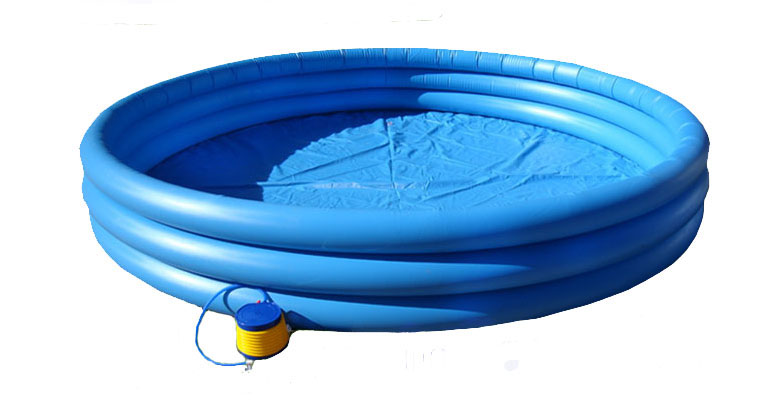 Between July 2012 and June 2013, children under five accounted for
nearly half of all swimming pool drowning deaths with falls into water,
accounting for 81 per cent of these deaths, according to a recent Royal
Life Saving Society report.
Between July 2012 and June 2013, children under five accounted for
nearly half of all swimming pool drowning deaths with falls into water,
accounting for 81 per cent of these deaths, according to a recent Royal
Life Saving Society report.
It is impertative that portable pools are always empty and stored safely away from younger children when not in use. Inflatable or portable pools that are deeper than 30 centimetres are surrounded by a swimming pool fence.

Safety tips for portable pools
- Always empty smaller pools when not in use.
- Always store portable pools safely away from young children when not in use. Store the pool to prevent small amounts of water being collected in the pool due to rain or nearby sprinklers.
- Ensure larger inflatable or portable pools are surrounded by a swimming pool fence.
- Consult your local government authority for fencing requirements.
- Always actively supervise children from within arm’s reach when they are in and around the water.
- Never rely on older children to supervise younger children, no matter how confident you are about their ability to watch the younger child.
The Consumer Goods (Portable Swimming Pools) Safety Standard 2013 prescribes requirements for this mandatory standard which comes into effect on 30 March 2014.
Under this new standard, portable pools and their retail packaging will require new warning labels. The warning labels will also draw attention to state and territory fencing laws for pools, including inflatable and portable pools.
Under the mandatory standard, portable swimming pools are items that are both:
- intended for personal, domestic or household use
- one of the following:
- an inflatable swimming pool, of any depth
- a soft-sided swimming pool, of any depth
- a rigid-sided swimming pool that is not deeper than 300 mm.
Does this apply to your business?
Under the Australian Consumer Law (ACL), supply includes:
- in relation to goods - supply (including re-supply) by way of sale, exchange, lease, hire or hire-purchase, and
- in relation to services - provide, grant or confer.
This mandatory standard applies to anyone in the business of supplying portable swimming pools, including:
- manufacturers
- importers
- distributors
- retailers
- hirers.
To allow for staggered implementation, there are some cases where a
mandatory standard or ban prescribes different compliance dates for the
manufacturing, importing and supply of a product. Manufacturers,
importers and distributors should check for this detail in the mandatory
standard before embarking on production, importation or distribution of
these goods.
Complying with the mandatory standard
To fully understand how to comply with the mandatory standard, suppliers must read the Consumer Goods (Portable Swimming Pools) Safety Standard 2013.
Penalties and consequences
Supplying portable swimming pools that do not meet the mandatory
standard can make you liable for heavy fines and product recalls. For
more details, view Penalties and consequences.
Further information on portable pool safety and the upcoming mandatory safety standard is available at http://www.productsafety.gov.au/portablepools
The Royal Life Saving Society National Drowning Report 2013 is available at http://www.royallifesaving.com.au/__data/assets/pdf_file/0003/9759/RLS_NationalDrowningReport_2013.pdf
